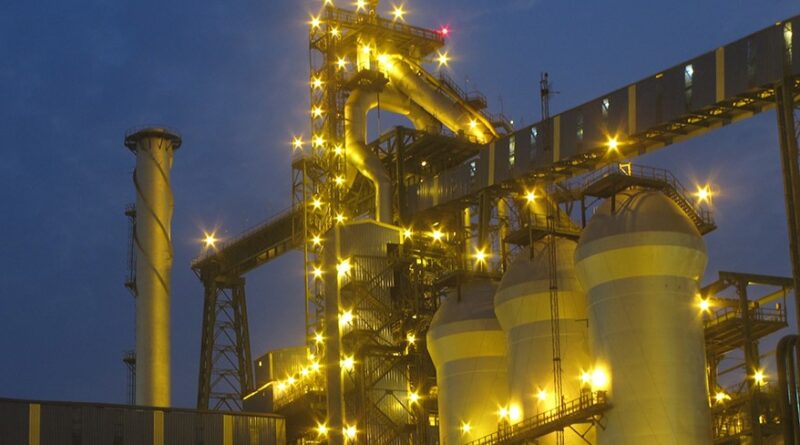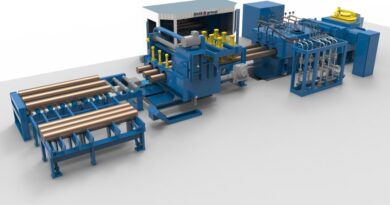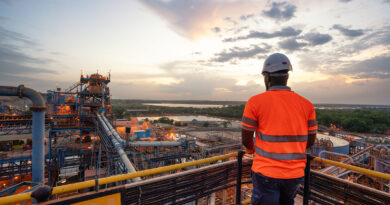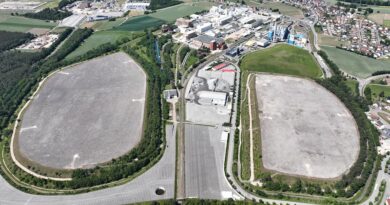thyssenkrupp: High-tech for carbon-neutral steel production
In pursuit of the best technological solution, thyssenkrupp will be the first steelmaker in the world to combine a 100-percent hydrogen-capable direct reduction plant with innovative melters.
Positioning the two melters immediately adjacent to the direct reduction plant allows the solid input stock produced there to be converted into molten iron immediately; this makes the entire process particularly efficient.
In addition, the spatial requirements and constraints a complex iron and steel plant involves can be taken into account. The direct reduction plant is based on SMS’s MIDREX Flex technology. SMS will also deliver the innovative melters, slag granulation and other auxiliary equipment, for example water recycling. SMS is building the plant on an EPC basis. This means the company bears overall responsibility for the engineering, procurement and construction of the plant. In addition, significant further work is required relating to structural and civil engineering, infrastructure and media supply.
The innovative concept ensures consistently high product quality. This is because it is seamlessly integrated into the existing iron and steel plant, thereby allowing all subsequent process steps from the steel mill onward to be maintained.
As a result, the existing plant structure can be used efficiently. Customers will continue to receive the complete, high-quality product portfolio with the premium quality they are accustomed to.
Major step toward innovative, industrial climate change mitigation
The cooperation between thyssenkrupp Steel and SMS also sends a strong signal for North Rhine-Westphalia as an industrial center. In building the direct reduction plant, the two companies are forming a partnership for innovation and efficient industrial climate change mitigation.
At the present time, thyssenkrupp Steel is still responsible for 2.5 percent of Germany’s CO2 emissions, but the first direct reduction plant alone will save over 3.5 million metric tons of CO2. This corresponds to 20 percent of the company’s current emissions, more or less, and underlines thyssenkrupp Steel’s leading role in the steel industry’s transformation.
At the same time, the underlying technological concept can serve as a model for many other decarbonization projects in the industry in Europe and beyond.
Moreover, this step into the transformation will preserve many thousands of high-quality and highly qualified jobs. The innovation alliance between thyssenkrupp Steel and SMS will also call for new qualifications, in addition to the jobs created during the construction of Germany’s biggest direct reduction plant.
The detailed planning and preparatory work for construction of the direct reduction plant will commence immediately, under the scope for an earlier start to work approved by the German government. One of the tasks on the list involves getting the construction site ready on the plant premises of thyssenkrupp Steel.
In parallel to the project, thyssenkrupp Steel will enter into an open and transparent dialog with neighborhood residents, politicians and the general public, to explain the pioneering project that is now being developed to decarbonize steelmaking at the Duisburg site.




